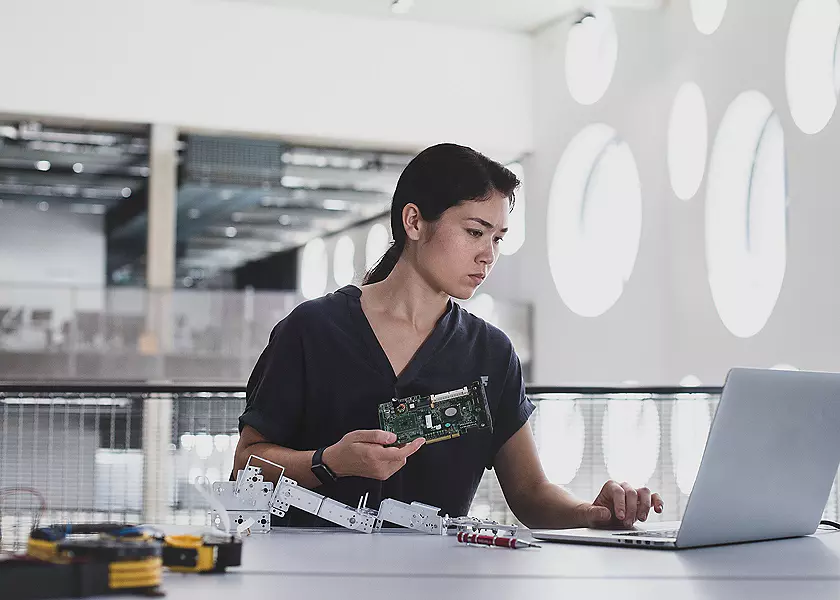Career development
Robert Half talent solutions and recruiting pros help job candidates develop their careers and reach their goals. Explore fresh, up-to-date insights now and chart your career with confidence.
How to Write a Letter Asking for a Raise
Start a tough conversation with total confidence. Explore essential tips for a successful salary negotiation.
 Read more
Read more
How to Write a Letter of Resignation
Exit with class. See what to include – and what to leave out – of a resignation letter to finish on a positive note.
 Read more
Read more
The 29 Most Valuable IT Certifications
Check out our list of the 29 most valuable IT certifications to expand your skill set, impress prospective employers and stand out from the crowd.
 Read more
Read more
More career development tips
Read more
Demand for Skilled Talent
Get insight into 2025 employment and job market outlook and learn which professionals are hardest to hire in our report, the Demand for Skilled Talent
 2026 Salary Guide
Access Robert Half’s 2026 Salary Guide & Survey, including data on salary ranges and benchmarks, perks and benefits, and total compensation.
2026 Salary Guide
Access Robert Half’s 2026 Salary Guide & Survey, including data on salary ranges and benchmarks, perks and benefits, and total compensation.
 Landing a job
Research and insights
How Much Does a Senior Accountant Make? 2026 Salary and Career Outlook
Wondering how much a senior accountant makes? Get updated salary insights, role responsibilities, and career progression details for this in-demand accounting role.
Landing a job
Research and insights
How Much Does a Senior Accountant Make? 2026 Salary and Career Outlook
Wondering how much a senior accountant makes? Get updated salary insights, role responsibilities, and career progression details for this in-demand accounting role.
 LinkedIn for Finance and Accounting Leaders: Building Credibility and Influence
Discover how finance and accounting leaders can use LinkedIn to build trust, demonstrate strategic impact, and attract top finance talent.
LinkedIn for Finance and Accounting Leaders: Building Credibility and Influence
Discover how finance and accounting leaders can use LinkedIn to build trust, demonstrate strategic impact, and attract top finance talent.
 How to Negotiate Salary as a New Grad: Tips for Recent College Graduates
Learn how to negotiate salary as a new grad with confidence. Get practical tips for recent college graduates on pay research, timing and what to say.
How to Negotiate Salary as a New Grad: Tips for Recent College Graduates
Learn how to negotiate salary as a new grad with confidence. Get practical tips for recent college graduates on pay research, timing and what to say.
 How Contract Legal Jobs Can Help Advance Your Career
Thinking about contract legal roles? See how flexible assignments can help you sharpen your skills and chart a stronger legal career path.
How Contract Legal Jobs Can Help Advance Your Career
Thinking about contract legal roles? See how flexible assignments can help you sharpen your skills and chart a stronger legal career path.
 Accounting Busy Season: 9 Strategies to Manage Tax Season Stress
Tax season for accountants doesn’t have to be overwhelming. These nine strategies will help you stay balanced, focused and stress-free.
Accounting Busy Season: 9 Strategies to Manage Tax Season Stress
Tax season for accountants doesn’t have to be overwhelming. These nine strategies will help you stay balanced, focused and stress-free.
 10 Higher-Paying Legal Jobs for Experienced Attorneys and Legal Leaders
Legal hiring remains strong, and compensation is trending up. Discover the top higher-paying legal jobs for 2026 and what it takes to land them.
10 Higher-Paying Legal Jobs for Experienced Attorneys and Legal Leaders
Legal hiring remains strong, and compensation is trending up. Discover the top higher-paying legal jobs for 2026 and what it takes to land them.
 Looking For a Remote Role? Recruiters for Remote Jobs Can Help
Work with recruiters for remote jobs to access hidden opportunities and negotiate better terms. Find flexible roles that fit your skills.
Looking For a Remote Role? Recruiters for Remote Jobs Can Help
Work with recruiters for remote jobs to access hidden opportunities and negotiate better terms. Find flexible roles that fit your skills.
 10 Higher-Paying Marketing and Creative Jobs in 2026
Explore the higher-paying marketing and creative jobs shaping marketing and design in 2026. Learn how AI, UX and strategy skills are redefining career growth.
10 Higher-Paying Marketing and Creative Jobs in 2026
Explore the higher-paying marketing and creative jobs shaping marketing and design in 2026. Learn how AI, UX and strategy skills are redefining career growth.
 Take a Closer Look at Today’s Tax Accountant Jobs and Salaries
Tax accountants remain in high demand as companies navigate evolving tax laws and year-end reporting needs. Explore current salary trends, key responsibilities and the skills employers value most in 2026.
Take a Closer Look at Today’s Tax Accountant Jobs and Salaries
Tax accountants remain in high demand as companies navigate evolving tax laws and year-end reporting needs. Explore current salary trends, key responsibilities and the skills employers value most in 2026.
 Marketing Analytics Manager: Salary, Skills and Career Outlook for 2026
Explore what marketing analytics managers do, key skills for success and 2026 salary trends from Robert Half’s latest Salary Guide.
Marketing Analytics Manager: Salary, Skills and Career Outlook for 2026
Explore what marketing analytics managers do, key skills for success and 2026 salary trends from Robert Half’s latest Salary Guide.
